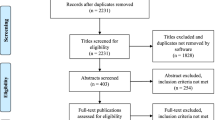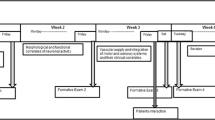Abstract.
Background:
Elective programs for medical students in the last year of their university training are poorly evaluated. The goal of this study was to determine the gain in theoretical and practical skills in a group of students during their elective in neurology. Students were trained by either conventional teaching methods or applying improved problem-based teaching.
Method:
A test of 78 multiple choice questions regarding both, theoretical and practical aspects of clinical neurology, was presented to 21 students (9 female, 12 male). This group of students (group A) was trained according to the conventional teaching method. A subsequent group of students (intervention group B; n = 19; 9 female; 10 male) was educated using a modified teaching method that consisted of more problem-based learning, gathering experience with neurosonological and neurophysiological principles and in intense bedside teaching. The test was performed at the beginning and end of their elective period. The percentage increase in the tests was taken as the primary endpoint. In addition, all students were asked about their degree of satisfaction with the elective in general.
Results:
Students of both groups did not differ with regard to age, gender, number of semesters, score of last examination and score of the test at the beginning of the elective. However, students who participated in the problem-based teaching group (group B) performed significantly better in the test at the end of the elective (increase 16.3% ± 15.5) than those who were trained according to the conventional teaching program (percentage increase 6.3% ± 9.4; p = 0.017). Students of both groups were highly satisfied with the elective in general.
Conclusion:
More problem-based teaching including practical exercises and intense bed-side teaching significantly improved students’ performance. Thus, adaptation of teaching covering these aspects should be encouraged and might improve the neurological knowledge and skills of the students.
Similar content being viewed by others

Author information
Authors and Affiliations
Corresponding author
Rights and permissions
About this article
Cite this article
Heckmann, J.G., Bleh, C., Dütsch, M. et al. Does improved problem-based teaching influence students’ knowledge at the end of their neurology elective? An observational study of 40 students. J Neurol 250, 1464–1468 (2003). https://doi.org/10.1007/s00415-003-0255-5
Received:
Revised:
Accepted:
Issue Date:
DOI: https://doi.org/10.1007/s00415-003-0255-5



